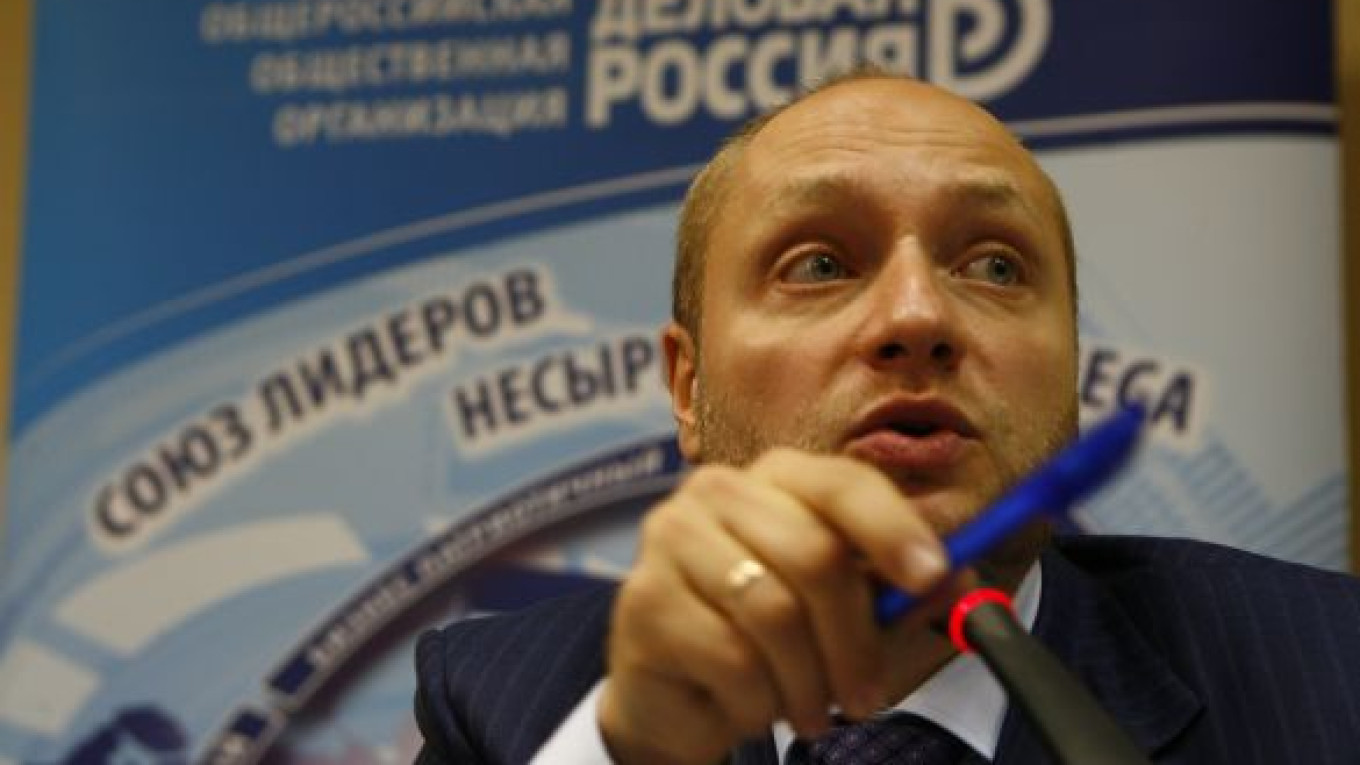President Vladimir Putin on Thursday appointed business lobbyist Alexander Galushka as Far East Development Minister, completing the staff changes meant to spur investment in a region sitting next to major Asian powerhouses.
A co-chairman of business association Delovaya Rossia, Galushka will work in tandem with Deputy Prime Minister Yury Trutnev, most recently a Kremlin aide and a veteran of previous Cabinets, who received his current post earlier this month.
The Cabinet reshuffle comes as the government is looking for ways to encourage development in the vast and resource-rich Pacific region — now suffering from massive floods — as part of Russia's drive to increase its presence in Asian trade.
“The goal of the new ministers is to identify the priority vectors for development,” said Timofei Bordachev, director of the center for comprehensive international and European studies at the Higher School of Economics.
Emerging last year, the position of Far East development minister initially went to Viktor Ishayev, a former Khabarovsk region governor. Ishayev came under fire for his bloated funding requests from the federal government.
Galushka, 37, represents a younger generation of Russians and could rely on his business past in creating better conditions for investors and deciding which projects come first.
He also showed himself as one of Putin's cohorts, taking a leadership position at the United Popular Front, a movement that brings together various pro-Kremlin groups. Galushka was co-chairman of the movement's central headquarters.
In addition to his public roles, he founded several businesses, now grouped into a consultancy called Key Partner.
Natalia Zubarevich, a researcher of regional economies at the Independent Institute of Social Policies, said Galushka's appointment took her aback.
“It looks weird to me,” she said. “It seems to me he is very removed from the place where he has been sent to serve.”
The seat of the Far East Development Ministry is in Khabarovsk.
Thanks to his higher rank of a deputy prime minister, Trutnev — an ally that Ishayev did not have — will have the opportunity to shepherd any Far East-related plans through Cabinet bureaucracy with less obstruction.
By giving greater clout to the Cabinet's Far East faction, the government could speed up decision-making. Also, Trutnev has spent eight years as natural resources minister in previous Cabinets and won accolades as a strong and reasonable government player.
“As a minister, Trutnev earned a reputation as an extremely no-nonsense person, who built policies that didn't cause conflicts and had no signs of senselessness,” Bordachev said.
He added that the reshuffle pointed to an increased possibility that the government will court foreign investors as the key driving force in the regional economy.
A Far East policy paper that Bordachev co-authored last year listed farming and water intensive industries — such as woodworking, pulp and paper mills, and production of chemicals — as the most promising for investors. The abundant waters of Siberian rivers and the region's rich soil would make for competitively priced exports to Asia, the paper stated.
Some analysts have urged the U.S. to engage more vigorously in the cause of creating a prosperous Pacific Russia, one reason being the containment of China's influence there. A subcommittee of the? U.S. House of Representatives held a hearing in April entitled “China’s Rapid Political and Economic Advances in Central Asia and Russia,” where Rens Lee, a senior fellow of the Foreign Policy Research Institute, said as much.
“The U.S. and its Pacific allies should increase their presence and engagement in the Russian Far East, not just to exploit commercial opportunities there, but also to limit China’s growing power and reach,” said one of his proposals, according to a copy of the testimony on the institute's website.
Contact the author at medetsky@imedia.ru
A Message from The Moscow Times:
Dear readers,
We are facing unprecedented challenges. Russia's Prosecutor General's Office has designated The Moscow Times as an "undesirable" organization, criminalizing our work and putting our staff at risk of prosecution. This follows our earlier unjust labeling as a "foreign agent."
These actions are direct attempts to silence independent journalism in Russia. The authorities claim our work "discredits the decisions of the Russian leadership." We see things differently: we strive to provide accurate, unbiased reporting on Russia.
We, the journalists of The Moscow Times, refuse to be silenced. But to continue our work, we need your help.
Your support, no matter how small, makes a world of difference. If you can, please support us monthly starting from just $2. It's quick to set up, and every contribution makes a significant impact.
By supporting The Moscow Times, you're defending open, independent journalism in the face of repression. Thank you for standing with us.
Remind me later.


